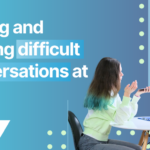Youth Ambassador Olivia Watkins interviews Jonathan Watkins, CEO of Impression Technologies, on how young people can tap into their creativity with engineering careers. He also says you shouldn’t just judge jobs by how they’re portrayed on TV. Because some really interesting jobs don’t get featured on TV at all.
Jonathan is now a CEO (the head boss of an organization), but he started out from scratch, just like everyone else. He did a degree in Materials Science followed by a Masters in Manufacturing, Engineering and Management, and was drawn to an engineering career because he was very interested in how things are made. He also wanted to know how to make a success out of innovation (creating new things and ideas).
Why would you encourage young people who are looking their futures to consider a career in engineering?
You have a chance to have your creativity and designs put into products that will be used by millions of people around the world. You have a chance to make a difference to the way we live and to the sustainability of our planet.
What key attributes are important to be successful in engineering?
To be successful in engineering you have to always be willing to continue your development. You never know everything and you have to be aware that not everything can be learnt through lectures or through your own study.
You need to go through experiences, and find out how the real world works.
You have got to keep an open mind and be willing to work well with others, build on each other’s strengths, because you can never do everything yourself.
So can an engineering degree open up other opportunities, if someone decides they’re no longer interested in becoming an engineer?
Because of your numeracy and your technical understanding, there are many careers open to you. A lot of engineers may go into consulting, because they have the ability to analyse complex situations. Many others go into commercial roles, looking at product development and how to launch those in global markets and eventually going into senior leadership positions within their industry.
It sounds great – however, I can imagine a lot of young people get put off by scientific degrees such as engineering because they see themselves as naturally artistic rather than mathematical or scientific. What would you say to them?
You can sometimes consider engineering as a mixture of science and art, together.
A fundamental aspect of engineering is the ability to create. In fact, the word engineering itself derives from ‘ingenious’, which means relating to creation. So, in engineering you are creating new things; whilst having a technical education is important in some areas, it is not the only thing that matters.
There are many very good engineers who have a natural gift for creativity, who can understand how things work without necessarily doing all the complex mathematical equations.
A mathematical predisposition can help in some areas, but it is not essential.
Did you ever regret pursuing engineering, or wish you did another degree?
I have not regretted it. Not many of my friends pursued engineering. A lot of people I knew went for what they perceived were jobs that gave them a lot of money initially. In fact, engineering can give you as many financial rewards as many other careers but you also have the benefit of seeing your creation, your product, on innovations that go around the world. You also have the potential to make a difference on the way we live, particularly on the environmental side.
Do you have any more general advice for young people choosing a future career?
I would get as much work experience as you can in different roles, because it is very difficult to form an opinion on something unless you have actually experienced the work environments.
Speak to lots of different people, get a wide range of views and don’t necessarily believe what the media say about any particular role.
When you say “don’t necessarily believe what the media say”, can you expand on that?
Well, a lot of jobs are characterised by how they are portrayed on television. Many of the good careers have no TV portrayal at all, so it is best if you approach companies.
Many companies in the engineering field would be delighted to give you an internship or perhaps a short period of work experience. Through that, you can understand what it may be like and whether or not it would suit you.
Engineering is not for everyone but for the right people it can be a very rewarding experience which gives opportunities both here in the U.K. and abroad, because it truly is a very international career.
If someone reading this decides to consider engineering, what would you say are the next possible steps, post-GCSE, to get into such a career?
I think there are two, equally worthy, paths.
Firstly, you can go through apprenticeships. Apprenticeships can be a very good way for those who want to see how engineering is applied quickly. These give you hands on experience with making and designing things and being exposed to a working environment early. They can be very rewarding for some and in my company we’ve had some apprentices who’ve come through, been very, very successful and gone to very well-paid jobs.
The other route is to take A-levels or a BTEC and then you will need to do some of the technical subjects. Maths and Physics will be particularly interesting and relevant for that career path. After that, you can go into industry or you can continue into university.
You may also be interested in:













